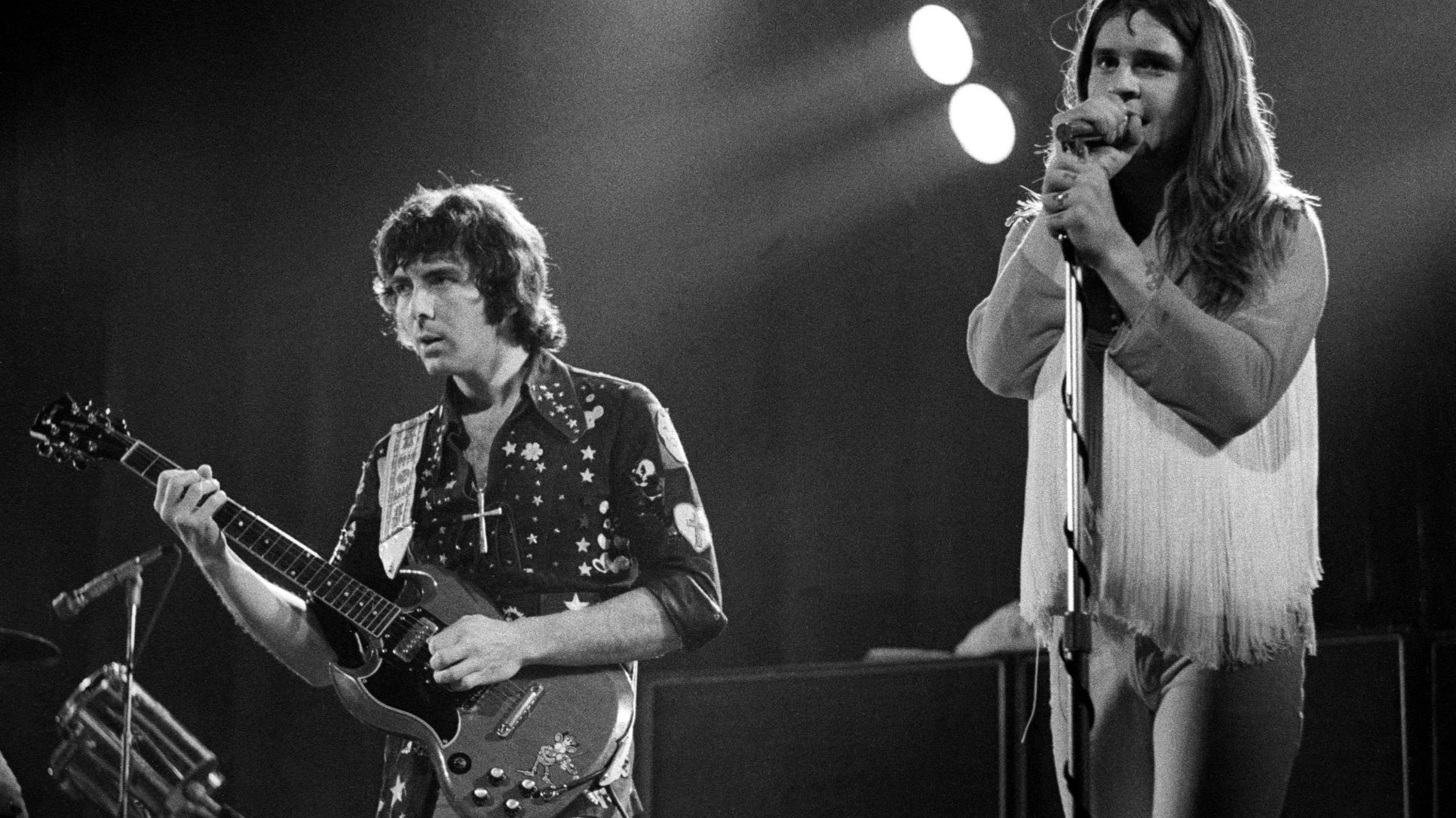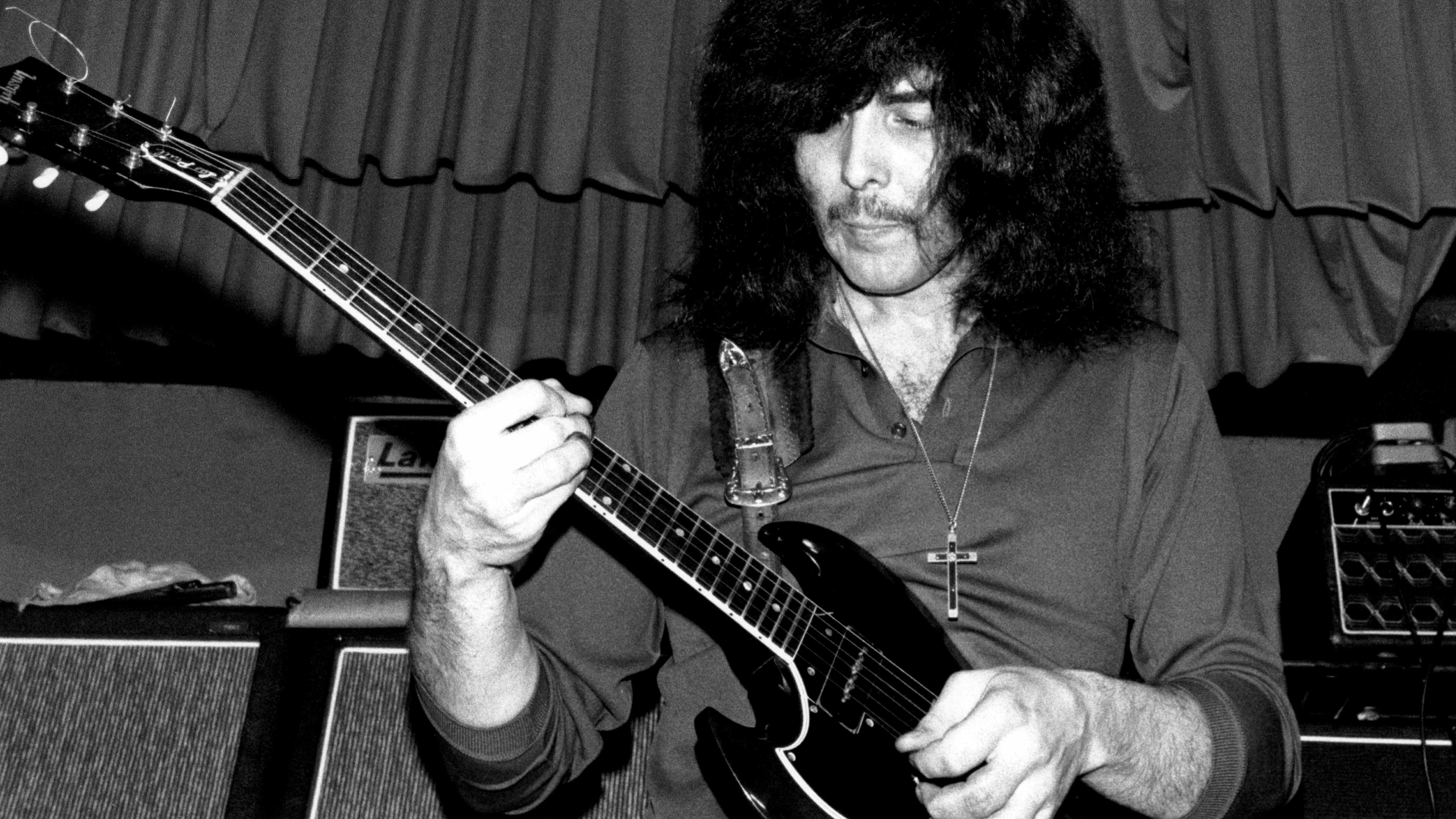"I saw all these musicians waiting in line and thought, 'Forget it.' But one of the crew told me to go sit in a cafe across the road." Tony Iommi on his last-minute gig as Jethro Tull's new guitar player
He may have only played two shows with the band, but the experience helped him push Black Sabbath to new heights

It’s rarely brought up today, but before he forged the sound of heavy metal on his Gibson SG, Tony Iommi had a short spell in Jethro Tull.
Iommi was performing with Earth – a precursor to Black Sabbath that included Ozzy Osbourne, Geezer Butler and Bill Ward — when he was asked to join Ian Anderson’s troupe in 1968 as a last-minute replacement for guitarist Mick Abrahams, who had just left the band.
His brief stint saw him appear with the band in The Rolling Stones Rock and Roll Circus, a live concert extravaganza featuring the Stones, the Who, the Dirty Mac — a supergroup consisting of John Lennon, Eric Clapton, Keith Richards (on bass) and Jimi Hendrix Experience drummer Mitch Mitchell — plus Jethro Tull.
“That was a strange meeting,” Iommi tells Guitar World. “We did a gig with Jethro Tull and it was the night Mick Abrahams was either fired or left — I don’t know what happened there. I saw them passing notes to each other onstage and thought it was weird. After the show, they asked if I’d be interested in joining, which was really surprising.”
Iommi had secured the gig after a highly competitive audition, for which he traveled 100-plus miles from Birmingham to London.
“I walked in and saw all these musicians waiting in line and thought, Oh no, forget it,” the guitarist says. “But one of the crew saw me and told me to go and sit in a cafe across the road.”
Iommi was the last in line and aced his audition. When Anderson invited him to join following the Stones' gig, Iommi asked his Earth mates what they thought.
All the latest guitar news, interviews, lessons, reviews, deals and more, direct to your inbox!
“On the way home in the van, I said to the other guys, 'Tull asked if I wanted to join them,’ and they all told me to go for it.”
The guitarist, who has recently begun toying with amp modelers as he continues to work on a brand new solo album, said his short tenure in the band taught him valuable lessons that he would later apply to Black Sabbath.
“It certainly was a good experience for me, because I learned a lot about how they worked and how Ian Anderson would run the band," he says.

“They would rehearse at a strict time every morning, at nine o’clock or whatever it was, and then break for lunch. It was a bit like going to work, really. In Black Sabbath, we never did that. We’d get together whenever — probably after midday. Those early morning starts were a bit of a shock. It was good to learn about how other people work.”
Iommi learned one key lesson from it all: “If you want a career in music, you’ve got to take it seriously," he says. "That’s what I spoke to my guys about.

“After a couple of things with Tull, including The Rolling Stones Rock and Roll Circus, I left and said to the Sabbath guys, ‘Let’s get back together — but we’ve got to work at it and put everything we’ve got into it.’ They agreed.”
Fortunately, Iommi's stint in the band has been preserved in the Rock and Roll Circus film, directed by Michael Lindsay-Hogg (who would go on to direct the Beatles' Let It Be documentary, which in turn provided the footage for Peter Jackson's celebrated 2021 film The Beatles: Get Back). The Circus was supposed to be shown on the BBC, but the Stones, unhappy with their performance, held it back.
Jethro Tull would later take “a big risk” in bringing Martin Barre into the band as they turned away from their blues-rock roots and onto more progressive pastures.
Ian Anderson has also spoken about the first and only time he played a Gibson Les Paul during the recording of Locomotive Breath. “Sometimes,” he says, “in order to get the job done, you have to do it yourself.”
A freelance writer with a penchant for music that gets weird, Phil is a regular contributor to Prog, Guitar World, and Total Guitar magazines and is especially keen on shining a light on unknown artists. Outside of the journalism realm, you can find him writing angular riffs in progressive metal band, Prognosis, in which he slings an 8-string Strandberg Boden Original, churning that low string through a variety of tunings. He's also a published author and is currently penning his debut novel which chucks fantasy, mythology and humanity into a great big melting pot.

